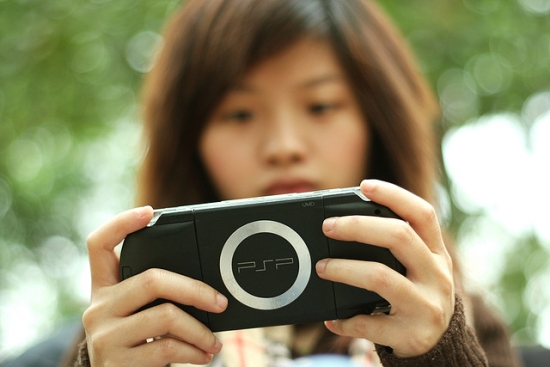During the recession, British consumers drastically cut back on purchases of expensive luxury items, instead concentrating on acquiring essentials until the economy showed signs of stabilising. This has had a huge impact on the retail sector, with certain companies in the electronics industry now struggling to keep their heads above water – although some businesses, such as Apple and Samsung, have continued to flourish despite the economic pressures.

This week, three of Japan’s most successful electronics manufacturers – Sony, Sharp and Panasonic – have all posted trading updates indicating that business has taken a turn for the worst in 2012. While this is partially due to the worldwide financial instability, factors such as the release of superior products by rival brands cannot be ignored, as they are effectively edging the three Japanese giants out of the market.
Sharp, which is known for its televisual products, made the announcement that surviving without a partnership with another company is no longer a possibility, due to the doubling of predicted losses. It will now pursue a financial association with other similar companies in an attempt to boost revenue and stem the flow of economic haemorrhaging.
The fourth largest television manufacturer in the world was established in 1912, and should be celebrating 100 years of trading this year. Instead, it appears that shareholders and workers alike will be more concerned about the continuation of the company which employs around 56,000 people worldwide.
In a statement released as part of the trading update, Sharp said that its forecast annual loss, thought to be a record £3.5 billion, “raises serious doubts about our ability to continue as a going concern.”
This negative view is shared by many industry experts in Japan, who now doubt the longevity of the company.
Chief executive of Commons Asset Management in Tokyo, Tetsuro Li, says; “Perhaps it will not fail within this year, but I do not think Sharp has a viable business in the next 3 to 5 years.
“The company hasn’t got much time left.”
Sharp is now thought to be powering ahead with talks between itself and Taiwanese electronics giant Hon Hai, which trades internationally as Foxconn. Should negotiations prove successful, Hon Hai will become the struggling company’s largest shareholder in return for a massive cash injection that will enable Sharp to remain a presence in the electronics market.
Meanwhile, Panasonic share value dropped by a fifth after the company announced an expected £6.2 billion loss this year, thereby wiping £1.9 billion from the business’ market value. It also revealed plans to scrap its dividend – the first time it has reverted to this technique since 1950.
Sony has also struggled to remain buoyant during the global recession, despite the success of its Playstation brand. This week saw the company, which was once a leading light in the technology industry, post its seventh consecutive quarter of losses, whilst simultaneously lowering predictions for the number of hand held games consoles which will be sold this year.
However, Sony are still on track to keep the pledge made earlier this year – that the business will turn an annual profit, after four years of annual losses. Furthermore, it managed to shrink the net loss sustained in the first half of the financial year, possibly indicating that the remainder of 2012 will be more successful for the ailing giant.
Junya Ayada, analyst at Daiwa Securities Co. in Tokyo, believes that the three Japanese electronics companies must innovate in order to remain competitors in a quickly advancing market.
He says; “TV sales are worsening this year amid economic downturns in the U.S. and Europe.
“As the global recession continues, consumers are no longer spending much money on electronic products, as they now have a smartphone that can satisfy most of their needs.”
While Japan’s main players in the electronics field suffered greatly this year, the same cannot be said for South Korean group Samsung. The company is now said to be worth around £110 billion after hugely successful sales in its smartphone and tablet computer divisions.
Do you think companies such as Sharp, Panasonic and Sony need to up their game and develop new technologies in order to compete with the likes of Samsung and Apple? Will the electronics industry pick up again now that the recession is over in the UK, or do you believe that consumers will remain cautious about major purchases for some time yet?
Previous Post
Cold Snap Warms the High Street